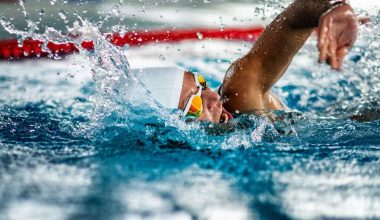
Swimming is a fantastic sport that most Australians are introduced to learn at a young age. Programs such as Nippers at surf life saving clubs and other swim...
Learn More
A research article published in the International Physiotherapy Research journal in June 2010, looked at frequency of exercise therapy in shoulder impingement pain and the long-term outcomes achieved....
Learn More
An ergonomic workspace is important to help maintain good posture while working. When you sit stationary for too long or sit in a slouched position, different muscle groups...
Learn More
In the lead up to the Mother’s Day Classic, and whether you’re planning on competing a 5km or half marathon, it’s always great to be prepared. Here are a...
Learn More
The start of the new school year has arrived and as a parent you want to ensure your child has the best possible experience. One important aspect is...
Learn More
Understanding and Managing Low Back Pain Low back pain is an incredibly common issue that affects around 80% of people at some point in their lives. Whether...
Learn More
Long gone are the days when Pilates was associated with only ballet dancers and pregnant ladies. The benefits of Pilates have been discovered by pro golfers on the...
Learn More
Running technique has become a hot topic recently with a growing trend towards ‘barefoot’ running and forefoot strike. The popular book “Born to Run” by Christopher McDougall along...
Learn More
Why Clinical Pilates is Perfect for Every Body Clinical Pilates is a fantastic option for exercise based rehab, as it offers a tailored, evidence-based method to help individuals...
Learn More
As cycling is a very repetitive sport, any injuries that occur tend to be related to overuse and can usually be attributed to inadequate bike setup, training volume...
Learn More
Training programs set for professional athletes have changed over time as physiotherapists and the sports medicine profession improve their knowledge about how the body responds to exercise. Not...
Learn More
Are you ready to commence work en pointe? Perhaps one of the most exciting times in a young dancers life is when she puts on her first pair...
Learn More
Unfortunately, as we age, we lose muscle mass and strength, impacting our function and quality of life. This condition, known as Sarcopenia, most intensely affects older adults and...
Learn More
The Essential Role of a Specialist Physiotherapist in Your Rehabilitation When recovering from an injury or managing a complex musculoskeletal condition, expert care can make all the difference....
Learn More
What is the most effective method of exercise recovery? It is important when we train that the stimulus is challenging enough to improve our capacity, whether this be...
Learn More
Winter is here, and with it comes the exhilarating promise of skiing and snowboarding. Whether you’re a seasoned athlete or a family looking forward to your annual ski...
Learn More
Chronic Pain and Physiotherapy: What You Need to Know Living with chronic pain can be exhausting. Unlike acute pain, which usually resolves as the body heals, chronic pain...
Learn More
Sports Injuries: Prevention, Recovery and Performance Sports injuries affect people of all ages, fitness levels, and abilities. While athletes often perform at higher levels of strength and function,...
Learn More
You may have heard about Pilates from a friend or even had a recommendation from your doctor. Pilates has gained immense popularity over the years. It offers a...
Learn More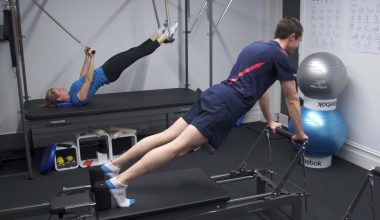
Clinical Pilates is an incredibly popular form of stability and control-focused exercise. The origins of Pilates date back to World War I where one Joseph Pilates, who the...
Learn More
Why Bone Health Deserves Your Attention Bone density plays a critical role in long-term health and function — particularly for women. From adolescence through menopause and beyond, a...
Learn More
Finding the Best Physiotherapy Near You: A Local Guide If you’ve ever searched “physiotherapy near me” online, you’re not alone. In Australia, thousands of people search this term...
Learn More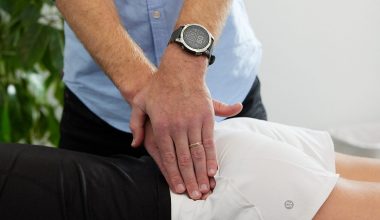
Understanding Australia’s Most Common Physiotherapy Conditions: What We See Every Day As physiotherapists here at Malvern Physiotherapy Clinic, we’re often asked about the types of conditions we treat...
Learn More
Over the last 25 years, the overwhelming evidence has shown that resistance training for children and adolescents has a number of significant benefits, including injury prevention, improved athletic...
Learn More
How Physiotherapy Can Support You Through Pregnancy and Postnatal Recovery Pregnancy is an incredible journey, but it also brings significant changes to your body. As your baby grows,...
Learn More
In only 5 minutes a day, you can still make a difference to how great you feel & your long-term health! Does your desired exercise routine keep getting...
Learn More
At Malvern Physiotherapy Clinic, we understand that no two bodies are the same, so we prioritise individualised care. Whether new to Pilates or returning after an injury, beginning...
Learn More
Discover everything you need to know about physiotherapy, what physiotherapists do, how they help, and when you should seek advice from a physio. Our warm and friendly team...
Learn More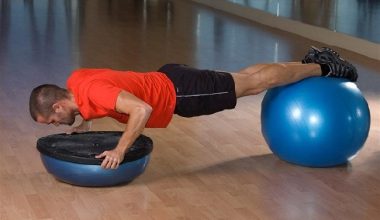
“Core”…what does it even mean? The concept of “core” means different things to different professions. Core can refer to the abdominal muscles, pelvic floor muscles, the muscles that...
Learn More
Headaches and Neck Pain: How Physiotherapy Can Help Headaches and neck pain are a frustrating combination that can seriously impact your ability to work, exercise, and enjoy life....
Learn More
Managing Common Health Concerns with Physiotherapy Physiotherapy is an essential part of allied health care, offering a hands-on and evidence-based approach to managing a wide range of health...
Learn More
For years warm-ups have been an unquestionable must before exercise, however some more recent research suggests static warm-ups don’t prevent injury. Does this mean we should drop the...
Learn More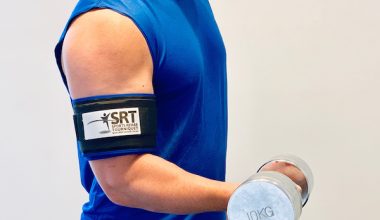
Blood Flow Restriction (BFR) strength training is a new option in rehabilitation for those needing to increase muscle size and strength, and who also need to reduce the...
Learn More
Shoulder Pain Malvern: How Physiotherapy Can Help You Recover Shoulder pain can significantly impact your daily activities, from simple tasks like reaching overhead to more complex movements involved...
Learn More
How you should prepare your body for the ski season As skiing and snowboarding have become increasingly popular, many enthusiasts often ask why they should prepare their bodies...
Learn More
Research has shown just 45 minutes of Pilates, twice a week for 8 weeks, was able to increase both flexibility, strength and your lower back control. This study...
Learn More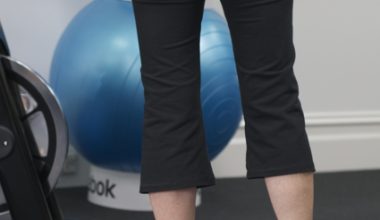
Strength training is typically seen as a way to mould, shape and develop the human body. It achieves these changes through controlled loading of muscle, tendon and bone...
Learn More
Osteoporosis literally means ‘bones with holes’. It occurs when bones lose minerals such as calcium more quickly than the body can replace them. They become less dense, lose...
Learn More
Congratulations to all those who participated in the Nike Melbourne Marathon Festival this past weekend. Runners of all ages and abilities came together to push their limits and...
Learn More
As we step into the new year, it is essential to prioritise our health and well-being. At Malvern Physiotherapy Clinic, we believe in empowering you with the knowledge...
Learn More
What is Osteoporosis? Osteoporosis is a medical condition diagnosed in individuals with low bone mineral density. The current definition is those with bone mineral density that is greater...
Learn More
One of the most common misconceptions when working with a physio is that your treatment is limited to your appointment. In fact, one of the most crucial elements...
Learn More
A UK study found that at least ¼ of those aged over 55 years of age suffered persistent knee pain each year. A Finnish paper also found knee...
Learn More
Swimming is a fantastic sport that most Australians are introduced to learn at a young age. Programs such as Nippers at surf life saving clubs and other swim...
Learn More
You may have heard about Pilates from a friend or even had a recommendation from your doctor. Pilates has gained immense popularity over the years. It offers a...
Learn More
Expert Physio Q&A: VALD Technology Welcome to our Q&A blog, where we discuss the cutting-edge VALD technology used in our strength assessments. These tools are designed to precisely...
Learn More
“Do you think that my headaches are coming from my neck?” This is a typical question that physiotherapists get asked on a regular basis. Cervicogenic headaches (neck-related headaches)...
Learn More
Orthoses or ‘orthotics’ are devices that we use in shoes to modify the load distribution through the foot. Most people associate orthoses being prescribed only for people suffering...
Learn More
Some thoughts from Hina on breathing techniques commonly taught in Clinical Pilates. I have been practicing Clinical Pilates for over eight years and teaching for the past five....
Learn More
Why Clinical Pilates is Perfect for Every Body Clinical Pilates is a fantastic option for exercise based rehab, as it offers a tailored, evidence-based method to help individuals...
Learn More
Blood Flow Restriction (BFR) strength training is a new option in rehabilitation for those needing to increase muscle size and strength, and who also need to reduce the...
Learn More
With a new school year already upon us, there are a few things you can do to help your child prepare and ensure a safe, active and healthy...
Learn More
Exercising Safely During Pregnancy: What You Need to Know “In the past, pregnant women were discouraged from exercise. However, this was mainly due to social and cultural biases...
Learn More
For people whose bowels are regular, we don’t give much thought to our poo. However, for those who have challenges – such as diarrhoea, constipation or difficulty controlling...
Learn More
Strength training is typically seen as a way to mould, shape and develop the human body. It achieves these changes through controlled loading of muscle, tendon and bone...
Learn More
What is Osteoporosis? Osteoporosis is a medical condition diagnosed in individuals with low bone mineral density. The current definition is those with bone mineral density that is greater...
Learn More
The start of the new school year has arrived and as a parent you want to ensure your child has the best possible experience. One important aspect is...
Learn More
Long gone are the days when Pilates was associated with only ballet dancers and pregnant ladies. The benefits of Pilates have been discovered by pro golfers on the...
Learn More


